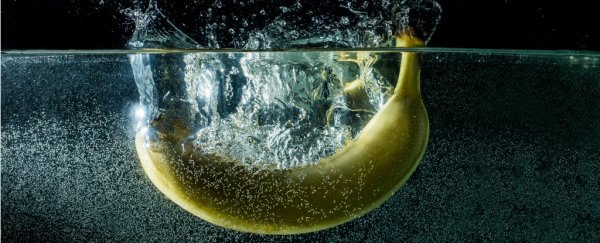The adjective 'slippery' isn't often used in a positive context, but when it comes to sexual intercourse, the old adage "the wetter the better" rings true.
In a noble attempt to make safe sex more enjoyable, a team of researchers in the UK has successfully invented a self-lubricating condom that provides a slippery sensation when used.
The researchers say their unique coating shows potential when it comes to cutting friction pain and boosting satisfaction.
While latex condoms have numerous advantages - such as excellent barrier properties, low cost and easy use - they also have high surface friction. This can lead to all sorts of issues during sex, including condom breakage and discomfort.
A lack of pleasure is a commonly cited "turn-off" among both men and women when it comes to condoms.
In a 2008 US national survey, 77 percent of men and 40 percent of women said they had experienced reduced pleasure and increased discomfort while using condoms.
Time and time again, this is the number one reason why many choose to eschew them altogether, increasing the potential for unplanned pregnancy and transmission of STIs.
So far, there is no perfect solution. Even when lubricants are used in conjunction with latex, improved pleasure can be short-lived.
"Personal lubricants can increase user satisfaction with male condoms by reducing friction and yielding a slippery sensation," the researchers explain in a particularly dry language.
"However, lubricants pose disadvantages of dilution in physiologic fluids and sloughing away over repeated articulations."
A self-lubricating condom could offer users an alternative. The researchers have developed and optimised what they call a "lubricious surface treatment technique," which coats the rubber latex with a thin layer of hydrophilic polymers.
As their name suggests, these polymers are attracted to water molecules and are soluble, which means that upon contact with a wet surface, they become slippery to the touch.
The coating technique is inspired. It forms a strong chemical bond between the lubricant and the latex, meaning the coating is not easily rubbed off and provides consistent low friction. Importantly, none of these characteristics were found to affect the strength of the latex.
Even users are able to notice the difference. As part of the study, a follow-up survey asked 33 participants to feel and compare three different latex samples before and after water contact.
The vast majority of participants agreed that the self-lubricating latex material felt more slippery (85 percent). Of that number, 70 percent felt the coating was 'much' or 'very much' more slippery than the other two alternatives.
"The survey results suggest that an inherently slippery condom could be adopted and could increase condom usage among populations that do not consistently use condoms," the researchers conclude.
The invention was funded in part by The Bill and Melinda Gates Foundation, which awarded a series of grants in 2013 for the development of the "next generation of condom" - one that would not decrease pleasure and therefore incentivise people to use it more consistently.
According to the foundation, if the right invention is found, it could "lead to substantial benefits for global health, both in terms of reducing the incidence of unplanned pregnancies and in prevention of infection with HIV."
So far, it sounds like this team really is onto something here, and we can't wait to see the next steps.
The study has been published in Open Science.
